Internet's Dirty Secrets - Part1: You Are Being Watched
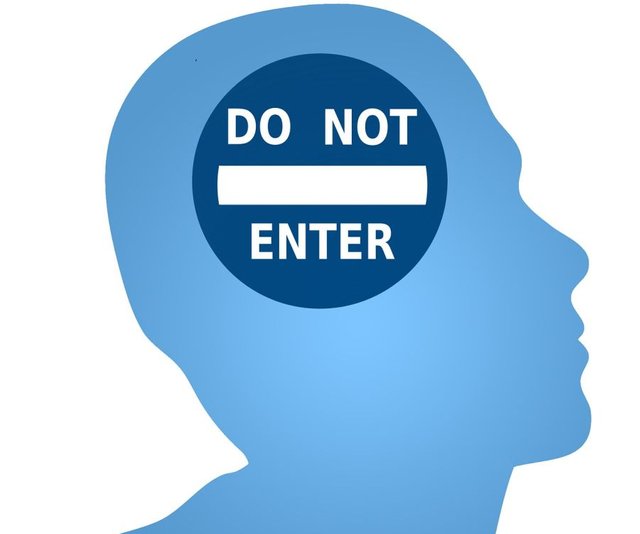
Welcome to the first episode in a series of posts that will lift the curtain on the wondrous world of what lies behind all those shiny websites you visit every day. From tracking cookies to pyramid schemes to the art of selling digital dust. I'll cover a range of subjects in this series over the coming weeks.
In this first episode, we take a trip to the scary reality of online privacy and anonymity, and what happens to your data when you're not paying attention.
How Big Brother and his partners are tracking you

90% of cookies are completely harmless and actually very useful! Some people think cookies are used to spy on you, track every single thing you do, and create spam and popups. But in truth cookies are simple text files that contain session information about your visit to a certain site. They can include personal information such as username and password, but those will always be encrypted. Cookies enable the server to identify a user. Personally, I don't worry about cookies too much. Even so-called 'tracking cookies' are harmless if you use a few simple precautions.
No, these days the real threat lies in other kinds of data gathering. The information scraping and gathering business is in the firm hands of global multinationals such as Google, Microsoft, and Apple. Companies who have access to all of your data. And that's just scratching the surface of this scary story about big data. More about that later, let's start with the usual suspects
1. Facebook
I have extensive experience running ads on Facebook. This gave me a glimpse into the kind of information Facebook keeps on its users. Let me show you a few examples of the Facebook ad editor that I quickly drafted up to give you an idea of the depth of detail in this data:
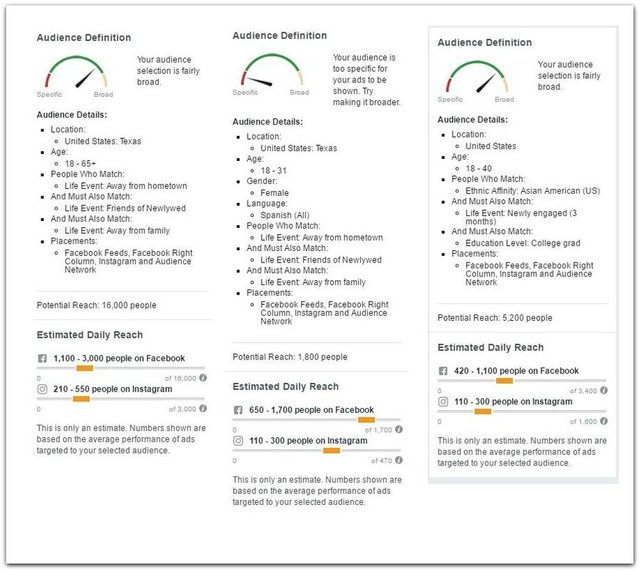
This is what Facebook does with your personal data. It makes it available to advertisers. They make around $8 per user per year from selling all that information. Everything you share, like, or even view on Facebook is stored in their massive evil database. If you're not careful, they'll know your political views, your favorite movies, what you ate yesterday, and where you've been the last month.
2. Google
While I'm entirely convinced that Facebook is evil incarnate, I'm still on the fence about Google. They ditched their original motto 'don't be evil' in 2009, and some of their projects do seem a bit more invasive than they used to.
Let's start with the mostly harmless one, Google analytics. You can be certain you've been tracked by them since it is utilized by a whopping 44% of the all the websites in the world. They collect more general data compared to Facebook, here's a screenshot of one of my websites. It shows the mobile device and network carrier used to access the page:
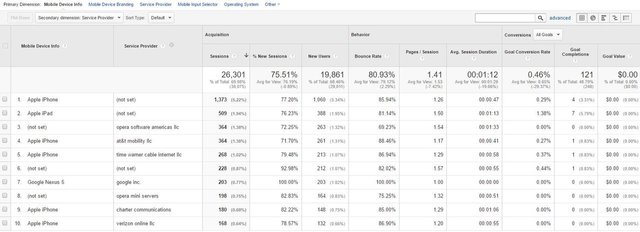
Personally, I think Google Analytics is a fine product that can seriously benefit any business or website owner. This service is not what worries me about the Google data collection. Google is also the creator of the most popular mobile operating system in the world. A staggering amount of devices run Android, from mobile phones to TV-sets. Then there is the immensely popular Streetview. Google has mapped a huge part of our road network and put it in an application. Knowing the amount of information they have on the world makes it very worrisome to see lawsuits such as these pop-up
Google scanned Gmail addresses of students for delivering advertising
Google fined for collecting personal information with the streetview car
3. The real Big Brother and the scary world of upstream data collection
Five years ago, this was still the firm territory of tin-foil hatted conspiracy theorists. But this likable fellow called Edward Snowden showed us in 2013 that they were right all along. Big Brother is watching us. And they do it in an impressive way! Slides of a top secret NSA presentation were leaked at the end of 2013, revealing a frightening collection of projects on worldwide data collection. This slide was the most terrifying and eye-opening to me:
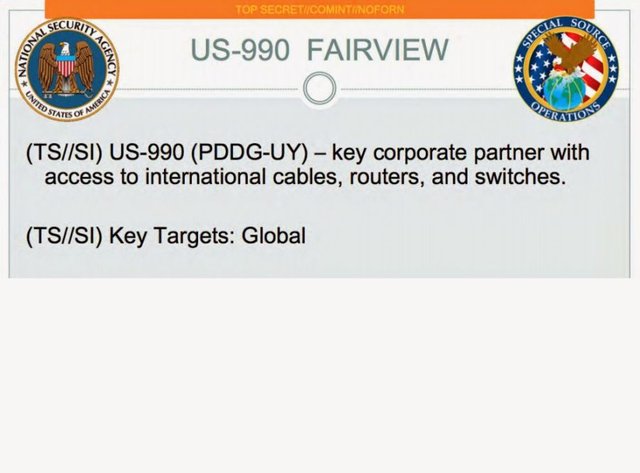
An ex-NSA employee said that it is a highly classified program for tapping into the world's fiber-optic cables. If that slide is real, then we can safely assume they work with at least one of the top level telecommunication companies. The likes of AT&T and Verizon.
With this kind of proof available, and there is much more to be found online than this tiny snippet, we should expect that everything we do online is being monitored. And you can include all the telephone and mobile networks in that as well. The leaks show that the NSA is monitoring almost every single communications network. All the data gets stored in an unimaginably vast database called 'FASCIA.' It gets fed nearly 5 billion records a day through the NSA's data tapping programs. They have access to the geo-location of your devices, they can read every message you send, and they have infrastructure level access to the optical lines all your data passes through.
Why you should care about privacy
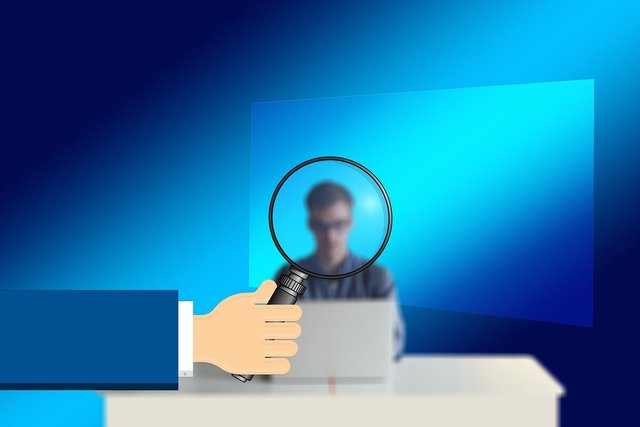
You probably heard this argument before: "Why do you see this as such a scary problem. After all, you don't have anything to hide, right?"
Everybody has something to hide, even if it's just their browsing history. There's always a part of you that you want to keep for yourself. I think everyone is vulnerable to the damage that can be caused by the release of sensitive personal information.
Governments want a less open internet and crave more control. All the data on you can be used as blackmail or hinder your international movements. Credit card and bank statements, court records, medical files are all stored in databases. Do you want everybody to know your testicle has been removed or that you spent some time in a mental institute? Privacy concerns all of us!
Loss of autonomy
If you lose the control over which personal information you want to disclose, you lose the freedom to choose who you are and who you can be in relation to the rest of society. Most people have different personas that are used for various social situations. Your place in society is dependent on how and to whom you choose to disclose your personal information.
Anonymity
There are a plethora of reasons for not wanting to reveal your identity online. People might be concerned about political or business retribution and harassment.
Others might want to discuss intimate topics which they do not feel comfortable speaking about publicly. It has to be possible in any society to express individual opinions without revealing who you are. It gives people freedom of expression. Think about all the graffiti you see everywhere. Some of them are beautiful works of art, and some are political or controversial statements. Anonymity gives people an outlet for their opinions.
We know Facebook founder Mark Zuckerberg's view on online anonymity. A few years ago he said that having a different identity online than in real life is an example of a lack of integrity. Facebook has been trying to stamp out anonymous accounts on their platform for years. The first cases of authoritarian governments tracking down and harassing dissidents through their Facebook actions are already emerging. Anonymity online is an integral part of a free and open internet. Although one could argue that the idea of a free internet is already in shatters since the government has access to the actual backbone. Maybe we need a new, decentralized internet?
How can you protect your privacy right now?

There are several methods to reduce the exposure of your personal information online. Some are easy to implement, and other require some technical background. Depending on how far you want to go with your privacy. Here are 5 things you can do right now to protect your online privacy, ranked from easy to hard.
1. Stop using Facebook and Google
If you're just worried about the data gathering of the social media giants, then the quick and dirty solution is to stop using them! Or at least be very careful about the amount of information you are disclosing on Facebook and Google. Sadly enough Android is by far the superior operating system for mobile phones. Alternatives such as the Ubuntu phone are popping up, thus making it possible to use a mobile operating system that is truly open source and not dependent on companies such as Google, Apple, and Microsoft.
2. Use simple browser addons
There are a ton of browser addons that enhances your security and privacy. Here are two that I think are a must-have on every single device:
uBlock Origin is a lightweight addon that stops ads, scripts, and popups from running. This blocks most of the third party tracking scripts.
Https-everywhere will rewrite your browser requests to HTTPS, making sure all your traffic between you and the site is encrypted.
3. Encrypt your data
If you are a Linux or Mac user, you already have access to excellent encryption support. Windows has its Bitlocker technology, but this is not available in every version of its operating system. Encrypting your hard drives ensures that spyware and viruses are unable to reach your data.
4. Use a VPN
A more technical and drastic approach. A VPN (virtual private network) creates an encrypted tunnel from your device to the VPN provider. While the concept is good, the technology is still inherently flawed. As long as VPN connections are centralized, they cannot provide full anonymity.
The VPN providers lure customers in with the claim of complete online anonymity, but at the end of the day, you're still leaving a log trail in their systems. They know who is on the other end of the tunnel. If you login to your Facebook account through a VPN connection, they can trace that IP address to the VPN provider. They might not know where you are precisely located, but they do know that you are using a company to hide your real location.
5. TOR
Names like 'The Dark Web' combined with the Silk Road media attention made the TOR network an illustrious outsider in the online world. The decentralized nature of the system makes is perfect for hacktivists, criminals, and even governments (a big chunk of the funding for the TOR project comes from the US government).
TOR directs internet traffic through a network of relay networks that are operated by volunteers. This makes it considerably difficult to trace internet traffic back to its source. The idea is great in its essence, but
Anyway, forget about TOR. Our jolly friends of the NSA are already targeting it with malware
Can blockchain technology liberate us from government and corporate surveillance?
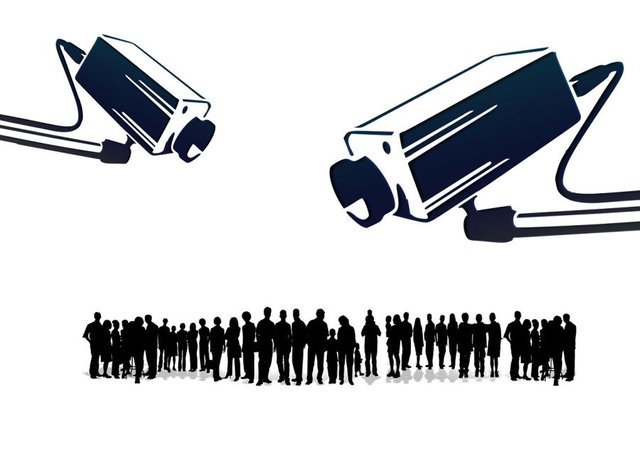
If we want to be completely free from surveillance and data taps, we'll need a decentralized internet with end to end encryption. Of course, simply changing how the internet works isn't a simple task. The technology behind the transmission of data through a cable is old and has never fundamentally changed. The internet was never designed for the massive amounts of data that pass through it today.
Companies such as Maidsafe are creating a decentralized network of resources, based on blockchain technology. A global network that utilizes the spare computing capacity of all the users on the system. This removes the need for expensive servers. The need for a system such as this is high and I hope it's something Steemit can be a part of. The battle for online privacy is in full swing!
Steem On (in full anonymity!)
Thank you for reading through this lengthy piece on online privacy. In the next episode of 'The Dirty Secrets Of The Internet', we'll take a closer look a some shady methods that internet marketers use to get their grubby little hands on your money.
Follow me here if you want to stay up to date!
Very interesting article and it is almost scary how much data and information people and companies can gather about us! Thanks for sharing!
It is very scary, not almost scary :)
But seriously, the fact that there is solid proof on the actions of the NSA is good but at the same time frightening.
I think - the only way to stay anonymous on the net, it does not use the network. The rest must be prepared that the data can be intercepted, anyway. Happy Birthday, Internet!
Well, if we have end to end encryption this problem would be solved. Actually Maidsafe solves all of the privacy issues!
Upvoted and followed!
@menta, that right there was some damn fine interweb journalism.
+10!
Thanks man!
I just learned from your post. Very very interesting article!!
Glad you picked something up
Thanks for the advice. I installed Ublock and HTTPS Everywhere on Chrome and Firefox. Both went seamlessly. My 8 year old son has been playing games on FRIV and even though I have his account on full parental lock down, he is still getting ads which are inappropriate. Keep up the good work.
Glad you found this post useful. Small things such as ublock can already help a lot.
Right on man. Good and informative as always. It's been a while, but I will post a brief on soon, and plan to keep the theme as the word I speak of resonates deeply within me. Hope you check it and and dig. It's brief, but a commom feeling for those that are Human, All Too Human (as Nietzsche titled on of his books). Be well, Steem On, and hope we cross paths again soon.